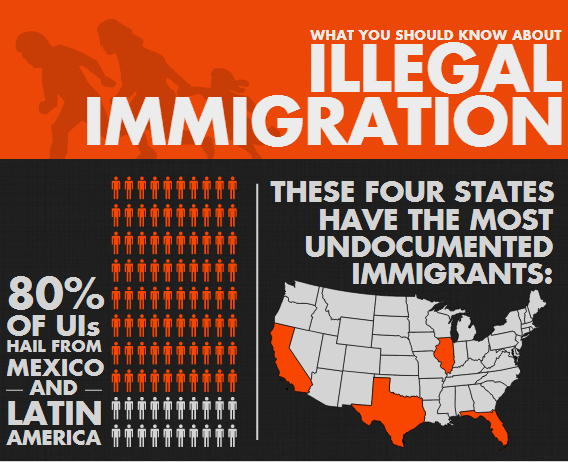Critics of the executive action temporarily protecting some 5 million illegal immigrants from deportation, which President Obama is expected to announce tonight, will predictably rage against the move as a gift to people who broke the law. But for the immigrants affected, the gift may force them into an unwelcome choice.
Immigration rights activists expect the president will announce something amounting to an expansion of the existing Deferred Action for Childhood Arrivals program to include certain classes of immigrant, such as the parents and spouses of U.S. citizens. DACA allows immigrants brought here as children to apply for temporary legal status that lets them work or go to school.
Related: GOP Leaders Grope for Solution to Immigration Action
The key words here are “apply” and “temporary.” For illegal immigrants who fit the criteria, both those words are fraught with uncertainty.
First off, applying for something is no guarantee you’ll get it, but in order to apply, it’s necessary to admit illegal status and provide large amounts of identifying information. So the first thing many illegal immigrants will want to weigh is whether coming “out of the shadows,” as the president puts it, is worth the risk of being denied protection while simultaneously admitting illegal status and effectively giving their name and address to Immigration and Customs Enforcement.
Second is the temporary nature of the action. President Obama can believably promise to keep the policy in place for the duration of his term, but that’s only two years. Once he leaves office, though, his executive actions are only as durable as his successor allows them to be. A President Ted Cruz, for example, perhaps elected on a promise to crack down on illegal immigrants, would not only be able to revoke the Obama administration’s protections on his first day in office, he’d also be able to instruct ICE to start deportation proceedings for those who had signed up for the program.
“There is risk to this in the sense that another president could revoke it,” said Greg Chen, director of advocacy for the American Immigration Lawyers Association. “There is no official legal status. It is a determination by DHS or ICE not to enforce the law against them for a period of time. But that period can expire.”
Related: A Shutdown Over Immigration – Are Agencies Ready?
“There is nothing in the law that says the president can’t revoke it,” he said. “A president has a great deal of latitude to extend these orders, revoke them, or allow them to lapse.”
However, Chen noted, whether a hard-hearted move like that would be politically possible is unclear. He said he believes the risk is minimal.
“More important though, I don’t think another president would want to target this population for enforcement. They will have family, jobs, and strong ties to the U.S. Why go after them and waste finite enforcement resources? Ultimately that risk is small. ”
Jorge Baron, executive director of the Seattle-based Northwest Immigrant Rights Project agreed that the concern about revealing themselves will probably prevent some eligible immigrants from applying.
Related: Obama to Move Ahead on Immigration Action Despite GOP Threats
“That is a legitimate concern,” he said. “I was just in a meeting with a number of other advocates and we were discussing how to address those questions. People need to be informed of the reality that this is temporary. It’s important for them to understand somebody could take it away.”
He said his organization and others like it would focus on educating undocumented immigrants about the pros and cons of applying for temporary protection, and then let them make their own decisions.
Baron said there was a similar dynamic in place when the DACA program was implemented. It was a few months prior to the 2012 election, and Republican candidate Mitt Romney had vowed to roll back the program.
“It kept some folks from applying,” said Baron. “But what we saw was that despite that issue, people did come forward and apply, because I think there was a big interest in getting that status, or getting a work eligibility. So yes, it’s going to be a concern, and some people probably will not apply. But I still expect a majority of people will.”
Top Reads from The Fiscal Times





